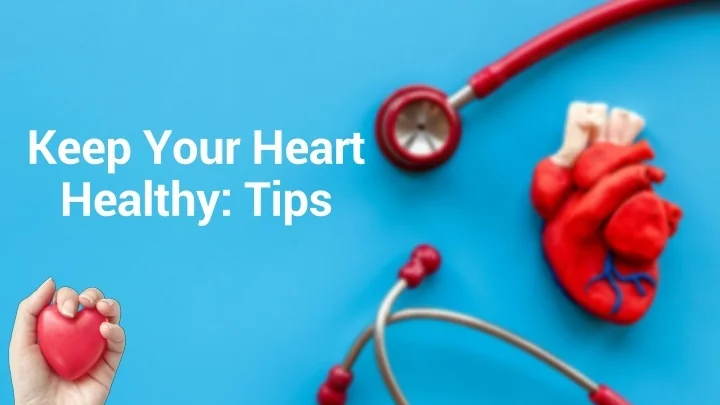
1. Don’t Go to Sleep Immediately
One of the most common practices that individuals engage in after having a meal is lying down or going to sleep immediately. However, this habit can have detrimental effects on one’s health, particularly concerning digestion. When a person lies down shortly after eating, it can interfere with the body’s natural digestive processes. This interference primarily arises from the horizontal position, which does not facilitate the gravitational flow of food through the digestive tract. As a result, individuals may experience discomfort, bloating, or feelings of fullness due to delayed digestion.
Moreover, sleeping right after a meal significantly increases the risk of acid reflux and gastroesophageal reflux disease (GERD). When the body is in a lying position, stomach acids have a greater chance of flowing back into the esophagus, leading to painful heartburn and other symptoms. Frequent occurrence of this can lead to chronic health issues and damage to the esophagus lining. Additionally, persistent acid reflux can complicate one’s overall digestive health.
Moreover, going to sleep immediately after eating is linked to potential weight gain. This connection is primarily attributed to the body’s metabolic rate, which is generally higher during waking hours. By lying down, one reduces caloric expenditure, which can contribute to weight retention over time. It is advisable to keep the body in an upright position for at least two to three hours after a meal, as this practice significantly aids digestion and minimizes discomfort. Engaging in light activities, such as walking, not only supports the digestive process but also helps prevent the negative impacts associated with lying down post-meal.
2. Avoid Heavy Exercise
Engaging in heavy exercise directly after a meal can be detrimental to both digestion and overall performance. When one consumes food, the body directs its energy resources toward the digestive system to facilitate the breakdown and absorption of nutrients. This process involves increased blood flow to the stomach and intestines, which is essential for digestion. However, when one chooses to partake in strenuous physical activities at this time, it can lead to several uncomfortable occurrences.
Strenuous exercise after eating can result in digestive discomfort and cramping. As the body divides its energy between digestion and physical exertion, it may not allocate enough resources to either process effectively. This competition can cause symptoms like bloating, nausea, and abdominal pain, which are not only uncomfortable but may also hinder athletic performance. Individuals may find that their stamina and endurance diminish, leading to a less productive workout session.
For those who still wish to remain active after a meal, alternative low-intensity activities can be beneficial. Engaging in light walking or gentle stretching can promote digestion while offering the benefits of physical movement. These activities encourage blood circulation without taxing the digestive system and can even help one feel more energized as the food is processed. Additionally, practices such as yoga—particularly those that focus on gentle poses—can enhance relaxation and support overall digestion.
It is advisable to wait at least 30 minutes to two hours after eating before engaging in any heavy exercise. This waiting period allows the body to complete a significant portion of the digestive process and ensures that one can fully enjoy their workout experience without discomfort or reduced performance. Thus, understanding the relationship between post-meal activity and digestion is crucial for maintaining both health and workout efficacy.
3. Skip the Smoking Habit
Engaging in the smoking habit post-meal can significantly hinder the digestive process, leading to a myriad of health complications. When food is consumed, the body enters a complex process of breaking down and absorbing nutrients. Smoking introduces harmful chemicals into the system, which can interfere with the normal functioning of the digestive organs. Specifically, nicotine and other substances found in cigarettes can relax the esophageal sphincter, increasing the likelihood of experiencing heartburn and acid reflux, conditions that are already aggravated by the presence of food in the stomach.
Moreover, smoking exacerbates digestive issues by constricting blood vessels, which diminishes blood flow to the digestive tract. This reduction in circulation limits oxygen delivery to the digestive organs, thereby impairing their ability to operate efficiently. As a result, individuals may not fully benefit from the nutrients consumed, leading to potential long-term health complications, including malnutrition. Additionally, smoking has been shown to disrupt the balance of gut bacteria, further undermining digestive health.
Long-term health risks associated with smoking following meals extend beyond digestive problems. Studies indicate that smoking is a significant risk factor for various cancers, including those of the mouth, throat, and esophagus. The persistent exposure to tobacco toxins can also contribute to cardiovascular diseases, thus posing a grave threat to overall health. Therefore, individuals are strongly encouraged to reconsider their smoking habits, particularly after eating. Quitting smoking can lead to a healthier digestive system and a reduction in the risk for numerous chronic diseases, paving the way for a better quality of life and enhanced well-being.
4. Don’t Drink Tea or Coffee Right Away
After a meal, many individuals are inclined to reach for a cup of tea or coffee as a comforting ritual or a way to aid digestion. However, consuming these caffeinated beverages immediately following a meal is not advisable. The primary concern is that caffeine can hinder the absorption of essential nutrients, such as iron and calcium, found in food. The presence of tannins in tea and coffee can bind to these nutrients in the digestive tract, diminishing their bioavailability. This interference can lead to potential deficiencies over time, especially for individuals who rely heavily on these beverages as part of their daily routine.
Moreover, drinking tea or coffee right after eating may induce digestive discomfort for some people. Caffeine is a known stimulant and can increase stomach acid production, which may exacerbate symptoms of acid reflux or heartburn. Additionally, the diuretic effects of caffeine can lead to dehydration if consumed in excess, especially after meals when the body needs adequate hydration to facilitate digestion.
To maximize nutrient absorption and minimize digestive issues, it is wise to wait a minimum of 30 minutes after eating before enjoying a cup of tea or coffee. This interval allows the body to digest the meal properly, optimizing nutrient uptake and preventing potential gastrointestinal disturbances. By implementing this simple adjustment to one’s routine, individuals can maintain good health while still enjoying their preferred caffeinated beverages on a more balanced schedule.
5. Avoid Cold Showers or Baths
After consuming a meal, the body enters a state of increased activity in the digestive system, necessitating optimal conditions for food breakdown and nutrient absorption. A critical aspect of enhancing this process is maintaining the right body temperature. Engaging in cold showers or baths promptly after eating can significantly disrupt this equilibrium. When exposed to cold water, the body instinctively diverts blood flow away from the digestive organs to preserve its core heat, which can hinder digestion.
This diversion of blood flow affects the stomach and intestines, which rely on a rich blood supply to function effectively during the digestive process. The digestive system requires warmth to break down food efficiently and facilitate enzymes in performing their roles. Cold exposure can cause the stomach to constrict, further limiting its capability to process and absorb nutrients. This physiological response can lead to discomfort, bloating, and other digestive complications.
Moreover, the balance between temperature and digestive efficiency is vital. A warm environment supports enzymatic activities, promotes effective nutrient absorption, and aids in the smooth transit of food through the digestive tract. Cold showers, by inducing a shock response in the body, could lead not only to a potential disturbance in digestion but also make one feel sluggish, counteracting the post-meal energy boost one might typically expect.
Therefore, it is advisable to wait at least a couple of hours after eating before indulging in cold showers or baths. This simple precaution may enhance your digestion and overall well-being, allowing the body’s natural processes to work without interference. By prioritizing digestive health over immediate comfort, individuals can enjoy better gastrointestinal function and a more pleasant post-meal experience.
6. Steer Clear of Sugary Snacks
After a meal, many individuals may experience a sudden craving for sweet treats. However, indulging in sugary snacks right after eating can have several adverse effects on your body. Consuming additional sugar immediately post-meal can lead to spikes in blood sugar levels, which can be particularly concerning for individuals managing diabetes or those at risk of developing insulin resistance. When you eat a meal, your body already begins to process the nutrients; adding sugary foods can disrupt this balance by causing your blood glucose levels to surge, resulting in a short-lived burst of energy followed by a crash that leaves you feeling fatigued and craving more sugar.
Moreover, the consumption of sugary snacks after eating can pave the way for overeating. The quick release of energy from sugar does not satiate hunger effectively, making it easier to ignore your body’s signals for fullness. As a result, you might find yourself reaching for more food shortly after a meal, ultimately leading to excessive calorie intake and possible weight gain over time.
To combat the urge for sugary snacks after meals, consider healthier alternatives. Fruits such as apples or berries can satisfy your sweet tooth while providing essential vitamins, minerals, and fiber that contribute to overall digestive health. Nuts and yogurt are also nourishing post-meal snacks that can help stabilize blood sugar levels without the negative effects of refined sugar. These options not only offer natural sweetness but also promote a sense of fullness, helping you stay on track with healthy eating habits.
7. Limit Your Screen Time
In today’s fast-paced world, the prevalence of screens in our daily lives is undeniable. Whether it be smartphones, tablets, or televisions, these devices have become omnipresent, particularly during mealtime. Engaging with screens while eating can lead to mindless consumption, causing one to overlook the food intake. Studies suggest that distractions from screens contribute significantly to overeating, as individuals often lose track of their consumption when their focus is diverted. This disconnection from the eating experience can hinder the body’s natural cues regarding hunger and satiety.
To foster a more mindful approach to eating, it is essential to limit screen time during meals. This practice not only enhances the eating experience but also allows individuals to appreciate the flavors, textures, and aromas of their food. By focusing on the meal itself, one can better gauge when they are full, thus reducing the likelihood of overindulgence. To achieve this, creating a designated eating environment devoid of distractions can be immensely beneficial. Setting the table for a meal, dimming the lights, or even playing soft background music can help establish a calming atmosphere that encourages focus on food consumption.
Furthermore, practicing mindfulness during meals can enhance one’s relationship with food. This involves paying attention to the sensory experience of eating, which can lead to deeper satisfaction and enjoyment of each bite. Techniques such as slowing down the pace of eating, chewing thoroughly, and savoring flavors can cultivate a more intentional engagement with food. Implementing these practices not only contributes to healthier eating habits but can also improve overall well-being. Reducing screen time during meals is a straightforward yet effective strategy that can promote mindful consumption and a healthier lifestyle.
8. Don’t Engage in Heated Arguments
After a meal, many people might feel a sense of relaxation and contentment; however, it is crucial to maintain this state, as engaging in heated arguments can have detrimental effects on both emotional well-being and physical health. When you partake in a stressful discussion or conflict right after eating, your body reacts in ways that can disrupt the digestive process. Stress triggers the release of hormones such as adrenaline and cortisol, which activate the body’s ‘fight or flight’ response. This physiological reaction can redirect blood flow away from the digestive organs, leading to inefficient nutrient absorption and potential digestive discomfort.
Moreover, stressful interactions may cause the stomach to produce excess acid, increasing the risk of indigestion, acid reflux, and heartburn. Such conditions can cause discomfort and a negative association with eating, which can create ongoing issues with digestion and gut health. Studies have shown that persistent stress can contribute to long-term gastrointestinal disorders, including irritable bowel syndrome (IBS) and bloating. It is essential for individuals to be aware of these impacts and seek to minimize their stress levels after meals.
Additionally, the emotional turmoil associated with arguing can lead to unhealthy coping mechanisms, such as overeating or processing food mindlessly. Not only do these behaviors negate the efforts made towards a balanced diet, but they may also foster a cycle of emotional eating and poor nutritional choices. Practicing mindfulness and engaging in calming activities post-meal, such as gentle stretching, conversation with loved ones, or relaxation techniques, can improve digestive health and promote overall well-being. In conclusion, avoiding heated arguments after eating is essential for maintaining both digestive efficiency and emotional balance.
9. Avoid Drinking Water in Excess
Water is an essential component of a healthy diet, as it facilitates various bodily functions, including digestion. However, consuming large amounts of water immediately following a meal can have adverse effects on the digestive process. When excessive amounts of water are ingested post-meal, it can dilute the digestive enzymes necessary for breaking down food, potentially hindering optimal nutrient absorption. This dilution can lead to discomfort, bloating, and even delayed digestion.
While hydration is critical for overall health, it is advisable to moderate water intake immediately after eating. Instead of drinking a significant amount at one time, sips of water can be consumed to aid in swallowing and facilitating the digestion process without overwhelming the stomach. Furthermore, it is generally beneficial to wait at least 30 minutes after a meal before drinking larger quantities of water. This interval allows the body to initiate the digestive process without interference.
Different individuals may have varying tolerance levels when it comes to post-meal hydration; therefore, it’s crucial to listen to one’s body signals. A moderate approach is ideal—aiming for about half a cup of water per meal can provide sufficient hydration without compromising digestive efficiency. Additionally, focusing on hydration throughout the day rather than solely after meals allows for an overall balanced intake without placing stress on the digestive system.
In summary, while water is indispensable for health, it is essential to be mindful of the timing and quantity consumed after meals. Adhering to the principle of moderation can support digestion effectively while ensuring proper hydration. Maintaining a clear understanding of these practices can greatly enhance your overall dietary experience.









